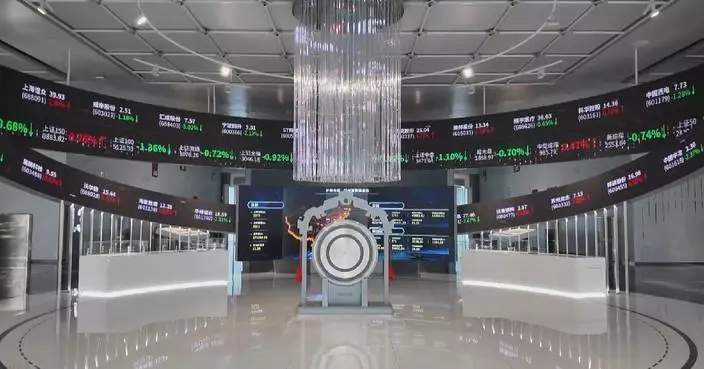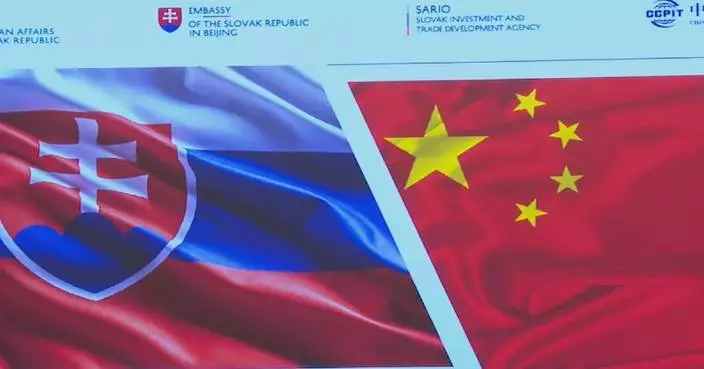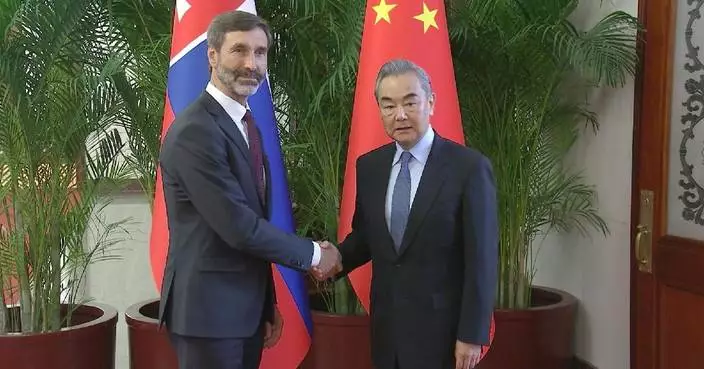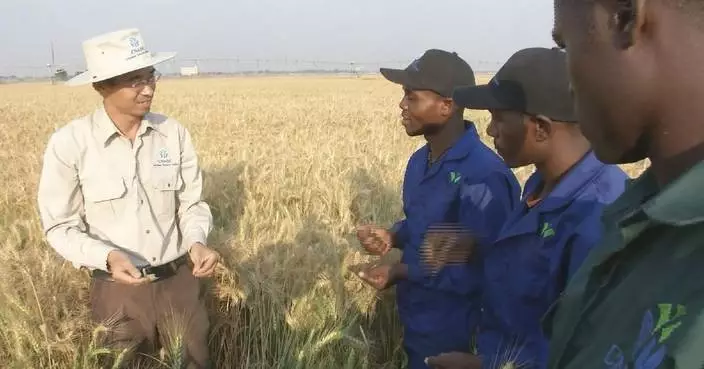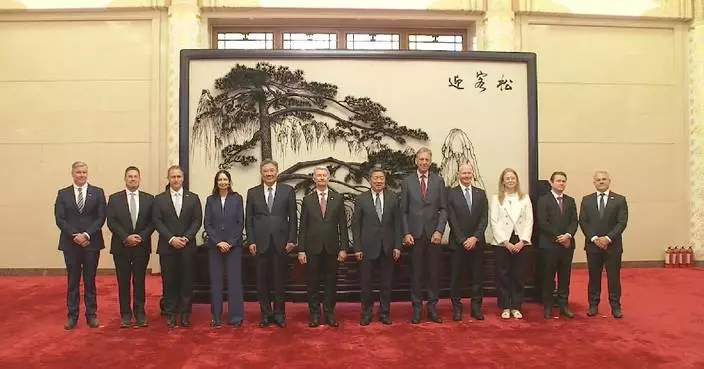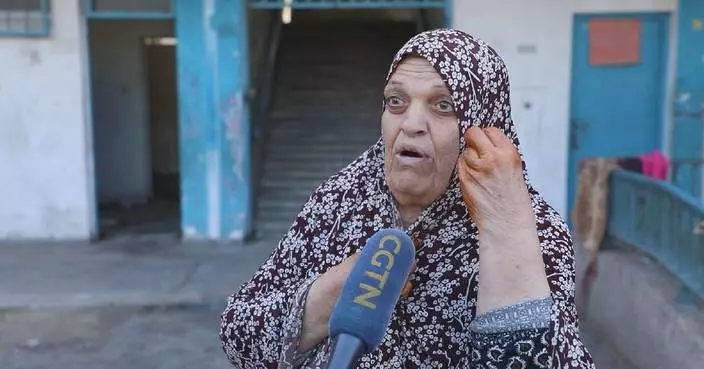Located in the southeastern suburbs of Beijing, the Economic-Technological Development Area, or E-Town, is pioneering AI applications in education through smart schools that leverage cutting-edge technology to enhance student engagement and ensure campus safety.
E-Town is rapidly emerging as a hub for artificial intelligence, showcasing diverse applications ranging from autonomous vehicles to factory robots, with education as one of its focal areas.
In a middle school in E-Town, teachers at both the elementary and junior levels are using visual and generative AI in the classroom to gather performance data on students, including class participation and emotional responses, and to generate comparative essays for learning purposes.
"We can use the data we collected after class to analyze the students, to give specific analyses of the student's development. Using AI tools or using the pictures or the videos (generated) by AI can definitely arouse their interest, (so) they engage in the class. They can make the somehow dull teaching materials into more vivid and more attractive ones and can help them have the interest to learn more," " said Bai Jie, an English teacher at the Beijing No. 2 Middle School BDA Branch.
AI is revolutionizing this school in a wide array of areas, from teaching to evaluation, while also providing a unique and immersive experience for students through after-class activities like playing chess with AI robots and enjoying 360-degree visual displays.
"Our school is empowered by AI in various aspects, including teaching, management, evaluation, and research. For instance, we have VR sci-fi painting creation activities that allow students to experience the futuristic cities with a 360-degree immersion form. Additionally, in some courses, we introduce AI robots to assist our teachers in creating innovative classroom experiences," said Yin Boya, leader of the Smart School Research and Development Team at the Beijing No. 2 Middle School BDA Branch.
Moreover, AI is also employed in this smart school to ensure student safety, a top priority in educational settings. Principals from schools outside E-Town in Beijing are planning to adopt some of these innovative practices.
"They mentioned the installation of an anti-crowd crush alarm system and an anti-bullying system in the restrooms, which also caught my attention. For school bullying, it may exist to some extent, but restrooms are often blind spots for surveillance. Moreover, we can't install surveillance systems in restrooms; voice collection seems quite ingenious. With this system in place, once students are aware of it, it serves as a deterrent in itself," said Wei Wenjuan, vice principal of Beijing No. 9 Middle School.
Along the school's science and technology corridor, a variety of high-tech products and AI robots developed by companies from Beijing’s E-Town are on display or ready to provide services, epitomizing E-Town's emergence as a pioneering high-tech AI hub.
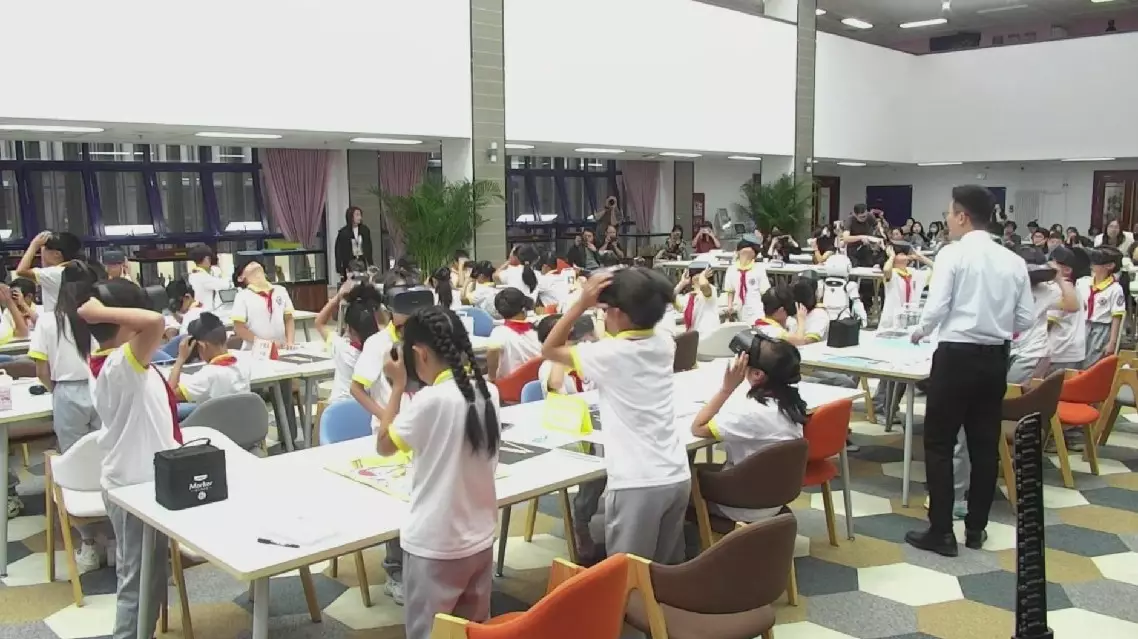
Beijing's e-town pioneers AI in education, boosting engagement and safety
Samarkand, an ancient city in Uzbekistan with a history spanning thousands of years, is captivating visitors from all over the world with its unique architectural style and rich cultural heritage.
As a UNESCO World Cultural Heritage Site, this treasure of Central Asian civilization is at the heart of the ancient Silk Road and stands as a testament to the Road's vibrant history.
Beneath its iconic blue domes lies the final resting place of Amir Temur, the formidable "Iron King."
In the 14th century, under Temur's rule, Samarkand reached its peak. The once undefeated ruler fought and expanded his territory all his life, and died on his way to China. Timur once aspired to build one of the most spectacular cities in the world -- and he succeeded.
The dome covered with blue tiles can be seen all over the city even today. The color symbolizes the sky, power and peace.
Registan Square, along with the surrounding Madrasah complex built by Temur's descendants, remains a central landmark. These architectural masterpieces, transcending their religious origins, have been part of the UNESCO World Heritage list since 2001.
Throughout the year, Samarkand draws a steady stream of tourists and newlyweds.
"My home is nearby. Of course I want to take my most important wedding photos here," said a resident.
"They have so much deep-rooted history, culture and color. I'm an architect, so this is all endlessly fascinating for me," said a tourist from India.
Romantic tales continue to unfold in modern times, one of the most touching being that of a Dutch family whose connection to Uzbekistan began in the historic city of Khiva.
"(In Khiva) There was this place where you can get water from a deep well. So we asked what is this? And the locals say it is a well of fertility. And then a lady asked: 'Do you want to drink it?' My wife said 'Yes, I would like to!' And one month later she was pregnant. This is our daughter, her name is Khiva," said a Dutch tourist.
As their children have grown, the family cherishes their memories of Uzbekistan, keeping the country's allure alive.
To harness its cultural heritage as a tourism asset, Uzbekistan has established the Silk Road University in Samarkand, focusing on tourism as a key discipline.
The university was built in 2018 at the suggestion of Uzbek President Mirziyoyev at the SCO summit in Qingdao.
"The entire university is mainly for training talents for the tourism and cutural industries. It started to recruit students right after its foundation in 2018 and offers undergraduate, postgraduate and doctoral degrees," said Zou Tongqian, Vice President of the Silk Road International University of Tourism and Cultural Heritage.
The degree programs cover historical and cultural archaeology, cultural heritage study, translation, foreign languages and literature. All courses are taught in English, with Chinese and Russian as compulsory courses.
"We are studying museology. If there's a chance, we would love to do more research and discoveries in this country," said Xie Shuang, a student.
"I feel a strong vibe of cultural exchange. In our class, we are joined by Russian students, Hungarian students," said Chen Ruisi, another student.
In recent years, Uzbekistan has established a visa-free system with more than 90 countries, including China.
The Travel and Tourism Development Index 2024 report shows that Uzbekistan has risen from 94th in 2019 to 78th in the overall ranking, an increase of 7.8 percent, becoming the fastest-growing economy in the index in the past five years.
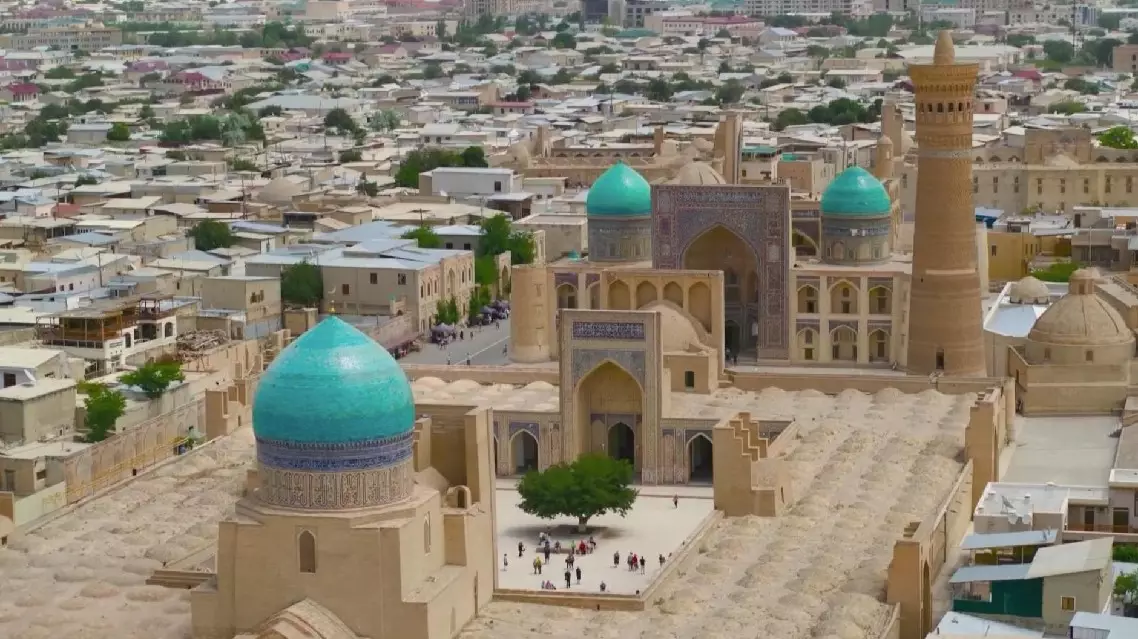
Uzbekistan's ancient city captivates world tourists with cultural splendor




